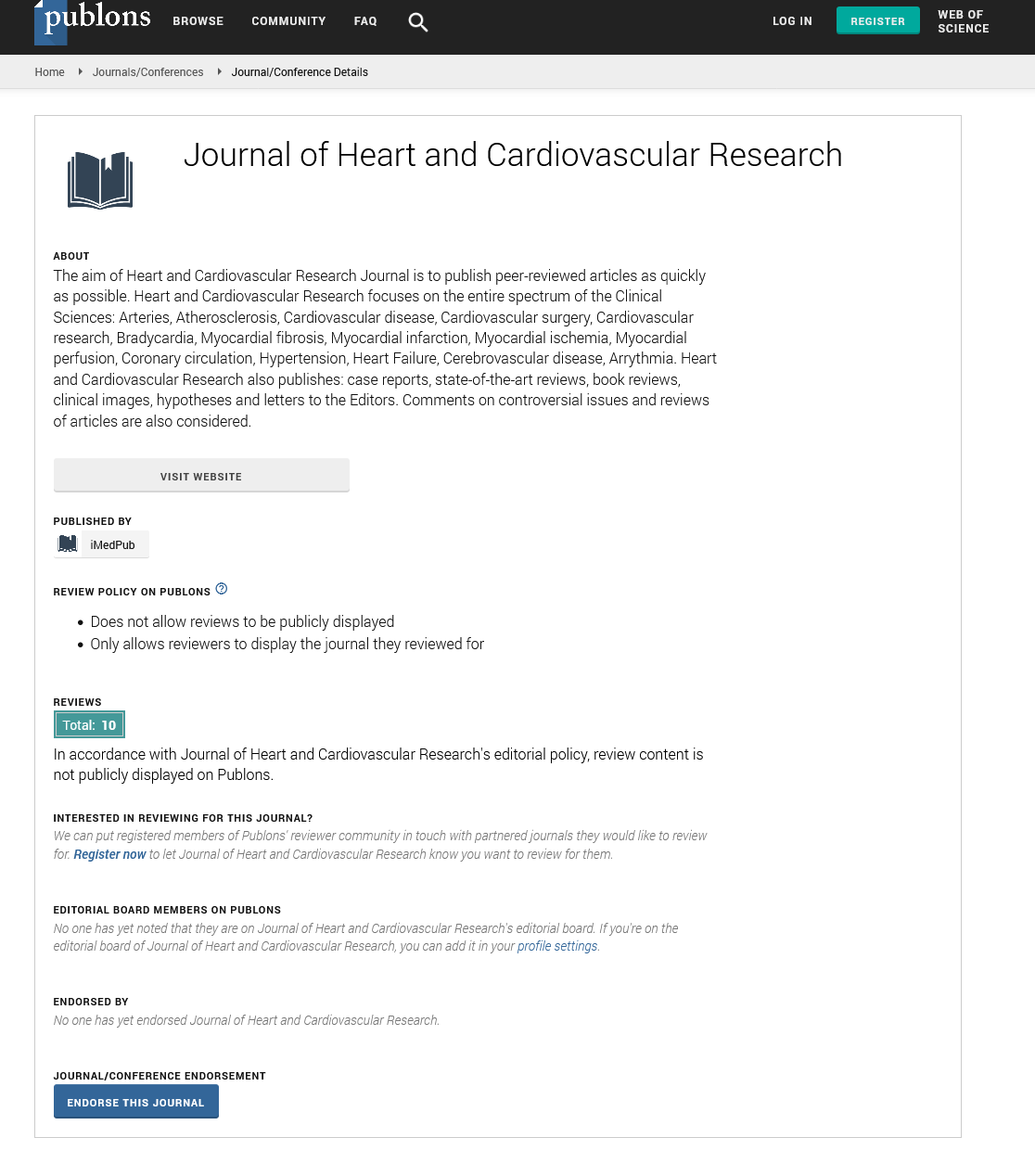ISSN : ISSN: 2576-1455
Journal of Heart and Cardiovascular Research
Abstract
Impact of a Health Educational Program on Patients Knowledge regarding Heart Failure
Background: Heart failure(HF) is an imajor cause of morbidity and mortality, especially in ageing people more than 65 years old. Heart failure (HF) affects and kills a large number of peoples, the nurses educating of Heart Failure patients about better quality of life ,risk factors, diagnosis as well as and treatment of their diseases. Objectives: The study objective are to assess patient knowledge before and after implementation of health educational program. Methodology: A quasi-experimental study with the application of pre and post-test approach for both study and control group at Hawler Teaching Hospital, Rizgary Teaching Hospital and East Emergency Hospital on patient with heart failure. Non probability purposive sample size of (400) heart failure patient chosen to include in the study. An educational program is designed as a result of the patients need assessment and from reviewing the relative scientific literature, previous studies and through the researcher experiences. The content of the program is evaluated by experts in different field, the researcher construct questionnaire interview form for the purpose of data collection, the questionnaire compromise from 2 parts, part one socio-demographic variables and part two patients knowledge. The validity of the program are achieved by panel of (24) experts. Reliability of the tools was determined through the application of (test – retest) approach obtained through evaluating (20) patients. Statistical data analysis achieved through descriptive statistical as well as data analysis and inferential data analysis. Results: Results revealed that studied group socio-demographic variables (SDCv.) had reported no significant differences at P>0.05, except in age groups, and levels of education, which represented significant different in at least at P<0.05, rather than most of studied group's individuals distribution concerning age, and levels of education are very similar. There is highly significant differences at P<0.01 are accounted a long (Pre – Post) periods in cases group. There is highly significant differences at P<0.01 are accounted regarding (Pre – Post) periods in control group. Regarding the study Global main domains a long (Pre – Post) periods in case - control groups, the result show represents improvements on the global means of score for samples regarding their knowledge about heart failure. Conclusion: According to the results, it could be conclude that patients knowledge improved due to applying of suggested educational program, and the educational program could be generalize.
Author(s): Yuns Baez Khider and Yousif Mohammed Younis
Abstract | PDF
Share This Article
Google Scholar citation report
Citations : 34
Journal of Heart and Cardiovascular Research received 34 citations as per Google Scholar report
Journal of Heart and Cardiovascular Research peer review process verified at publons
Abstracted/Indexed in
- Google Scholar
- Sherpa Romeo
- China National Knowledge Infrastructure (CNKI)
- Publons
Open Access Journals
- Aquaculture & Veterinary Science
- Chemistry & Chemical Sciences
- Clinical Sciences
- Engineering
- General Science
- Genetics & Molecular Biology
- Health Care & Nursing
- Immunology & Microbiology
- Materials Science
- Mathematics & Physics
- Medical Sciences
- Neurology & Psychiatry
- Oncology & Cancer Science
- Pharmaceutical Sciences
